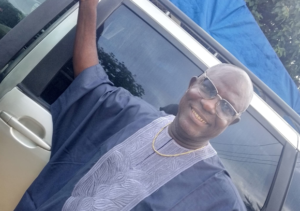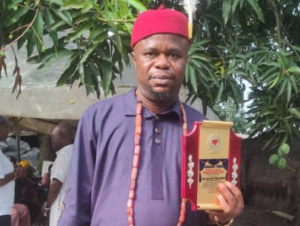Justice Delayed, Justice Denied.
6 min read
(A critical look at the judicial system in Nigeria by Umuaka Times clearly shows that the judiciary is fast sliding from being the last hope of the common man.)

William Ewart Gladstone, a British statesman and Liberal politician born on 29 December 1809 in Liverpool, United Kingdom was a man who loved justice and treated sticklers of injustice with disdain. William E Gladstone was famous across the globe for his quotable quote. “Justice delayed,” according to the Liberalist who died on May 19, 1809, “is justice denied.” This dictum seems to have found a comfortable accommodation in the Nigerian judicial system. From deep investigations made by Umuaka Times, the legal justice system in the country can be described as highly overwhelmed by trailer loads of legal cases starting from inconclusive and unending police investigations, judiciary workers’ industrial actions and the high cost of justice among other factors. Such factors include, the reluctance of witnesses to appear in court due to threats to their lives in criminal matters by some interested parties.
The laws of the Federal Republic of Nigeria stipulate that no one should be detained beyond 24 hours without being charged to court but a look into several police stations across the country today, many crime suspects have been detained for several weeks without any court appearance. Awaiting trial men and women are also not left out. According to a group known as African Criminal Justice Reform ACJR, more than 70 percent of the total number of 50,000 prison inmates in Nigeria is made up of awaiting trial detainees. This disclosure was made by the Comptroller-general of Nigerian Prisons Mr. Zakari Ohinoyi Ibrahim during a training course put together by Prisoners Rehabilitation and Welfare Action PRAWA through its Human Rights Integration Project in Abuja.
Many innocent detainees have been on trial or awaiting trial for over 10 years for minor criminal suspicions and offences. Several factors in the country today have evidently shown that the judiciary is completely derailing from its duties as the last hope of the common man. Since 2019 general elections held in the country and even before then, many Nigerian citizens have completely lost hope and confidence in the judiciary as the final arbiter. These helpless citizens now complain to God about their plights. Their hope lies in the Bible account that God who saved Daniel from the lions’ den will one day save them. Those deeply affected by this monster are predominantly the poor and the ordinary citizens in the country, Among these victims is a cross section of families whose breadwinners and loved ones were murdered by criminals either for political or commercial reasons and more. They have cried to the judiciary for help that never came and may not come too. On several occasions, the investigating police authorities charged with the responsibility to investigate criminal activities in the country, made the general public believe that they would apprehend the criminals behind such dastardly acts but at last, nothing good came out of such boasts. Anytime such cases are revisited by the press, the police will always say, “we are still investigating.”

In 2016, a newlywed couple in Kano were murdered in cold blood and the police assured the families and the people of Kano that they would fish out the killers, till date nothing was heard of the case again. In September 2017, the then Imo State Commissioner of Police, Chris Ezike, told reporters that the killers of a Roman Catholic priest, Reverend Father, Cyriacus Onunkwo who suspected kidnappers abducted at the popular Banana Junction in Orlu town in Imo State and later killed would be apprehended and prosecuted. The police later found the kidnappers but the sad news is that the court case is still pending 4 years after the murder was committed and from Umuaka Times investigations, the case will not be concluded any time soon.
Still in Imo State, on February 21, 2019, the Imo Police Command told journalists that it has launched a super intelligence surveillance to arrest the suspected killers of Mr Ifeanyi Ozoemena, the then chairman of All Progressives Congress (APC) in Logara/Umuohiagu Ward in Ngor-Okpala LGA. The politician, according to what newsmen and police gathered, was murdered by gunmen on a Tuesday night after presiding over a party meeting in his ward in preparation for an oncoming election. Till date, nothing tangible has been heard of the case again.
Coming to Lagos, the commercial heartbeat of the country, a local APC politician known as Otun Azeez Ashake was shot and killed by gunmen in front of his house in Isale Eko area of the state on Saturday, September 20, 2014. Despite the presence of witnesses to the gruesome murder, no one has been charged for the day-light killing of the politician. According to the APC spokesperson, the murder of Mr. Ashake is not unrelated to party politics.
From 2014 till date, the political big wigs who may have ordered the killing have made it impossible for the killers to be arrested and tried for the crime. Umuaka Times investigations reveal that eye witnesses to the crime are not willing to provide information to police investigators because they are afraid of being targeted themselves. A close relative to Mr. Ashake’s family who spoke to Umuaka Times in anonymity lamented the failure of the judicial system in prosecuting such heinous and senseless killings while expressing the pain of the family at losing their breadwinner.
From Umuaka Times investigations at the Nigerian judiciary across the country, there is a big range of several factors that contributes to the delay of the administration of criminal justice in the country. Umuaka Times penciled down poor remuneration and welfare packages for judiciary workers, political interferences by powers that be who have vested interests in such matters, inadequate and improper court facilities such as poor personnel management and carefree attitude of many judges. Of all these flaws, corruption, from Umuaka Times findings, remains the chief occupant of the centre stage of this judicial fracas.
Another problem confronting the smooth delivery of justice to the common man in Nigeria today is the inability of the government to protect its citizens who are witnesses in serious criminal matters. Many witnesses to such cases are totally scared to testify in courts because they see their lives being in danger if they do so.

In December 2015, a 29 man panel established to look into the rot in the judiciary across the country, submitted its white paper on the issue. The report was submitted to the Chief Justice of Nigeria in that era. The report came up with several suggestions and recommendations on how to overhaul the judiciary and have a robust judicial system. Till date, almost 6 years after, the country under the leadership of All Progressive Congress APC, has totally failed to do the needful on the judiciary.
During the first term of the former President Obasanjo, a similar body known as Human Rights Violations and Investigations Commission was set up to look into human rights violations and recommend ways on how to curb the abuses. According to the terms of reference handed over to the commission by the presidency, the investigations would start from 1965 down to 1999. After several hearings were conducted across the country, the panel submitted its report and till date, nothing was done by the Federal Government to implement the reports of the panel. Several victims of human rights abuses especially the poor and the downtrodden who have been waiting for justice from the report, have all died.
Observers are indeed worried that many innocent persons across the nation whose rights were violated by some powerful individuals or corporate bodies in the country have no one to run to. The judiciary has indeed failed them in many ways. It is not too late to start implementing the reports of several panels on how to move the country forward.
The delay of justice in Nigeria is indeed the denial of justice in the hands of those who seek justice. The common man is the man who bears the brunt of this crisis on daily basis. As Lord Denning puts it, it is better to release 100 convicted criminals and tell them to go home and sin no more than to let one innocent person to suffer unjustly in the hands of the law.




